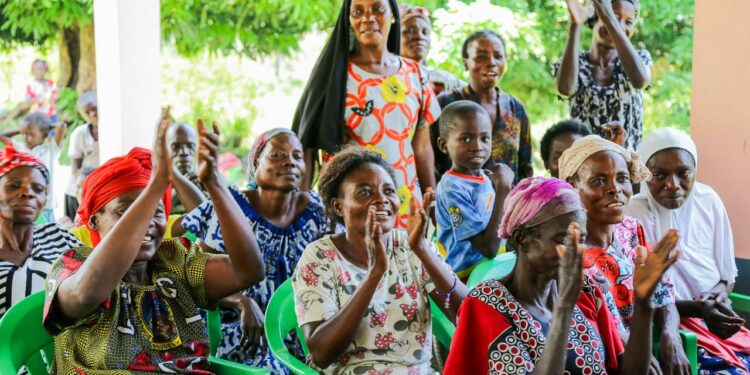Prominent female scholars, activists, and leaders have come together to advocate for enhanced transnational dialogues and partnerships among women, emphasizing the potential for such collaborations to elevate the interests and well-being of women globally.
This urgent call to action was underscored during the latest installment of the Toyin Falola Interview Series, broadcasted across numerous social media platforms, television networks, and radio stations worldwide.
The panel of esteemed discussants featured a diverse array of voices, including Professor Ousseina Alidou as the moderator, alongside renowned figures such as Professor Marame Gueye, Professor Fatima Sadiqi, Professor Simone A. J. Alexander, Dr. Zeinabou Hadari, Professor Lidwien Kapteijns, Professor Wunpini Fatimata Mohammed, and Professor Lilian Atanga.
Reflecting on the rise of feminist writers and critics, Professor Alexander emphasized the need for more impactful dialogues concerning women’s issues.
She highlighted the transformative contributions of African and Caribbean diaspora women, whose interventions have challenged conventional narratives and fostered transnational solidarity among women.
Professor Sadiqi lauded women’s efforts in preserving African languages and cultures, particularly citing the role of women in safeguarding the Amazigh language in North Africa.
She emphasized the intrinsic link between women’s creativity and the survival of linguistic heritage, underscoring the importance of acknowledging women’s contributions in cultural preservation.
Professor Mohammed shed light on the pervasive marginalization faced by African women, both historically and in contemporary digital spaces.
She called for a deeper understanding of the intersecting oppressions experienced by women globally, advocating for solidarity across diverse movements and platforms.
Dr. Hadari highlighted the potential of women to reshape history through innovation, citing examples from Niger where women have leveraged religious and technological resources to empower themselves and their communities.
She emphasized the need to recognize and amplify the contributions of Muslim women in driving social change and historical transformation.
The collective voices of these esteemed scholars and activists echo a resounding call for strengthened dialogues, partnerships, and recognition of women’s agency in shaping a more equitable and inclusive world.
As the momentum for gender equality continues to build, their insights serve as a powerful catalyst for meaningful change on a global scale.
Do you want to share a story with us? Do you want to advertise with us? Do you need publicity for a product, service, or event? Contact us on WhatsApp +2348183319097 Email: platformtimes@gmail.com
We are committed to impactful investigative journalism for human interest and social justice. Your donation will help us tell more stories. Kindly donate any amount HERE




